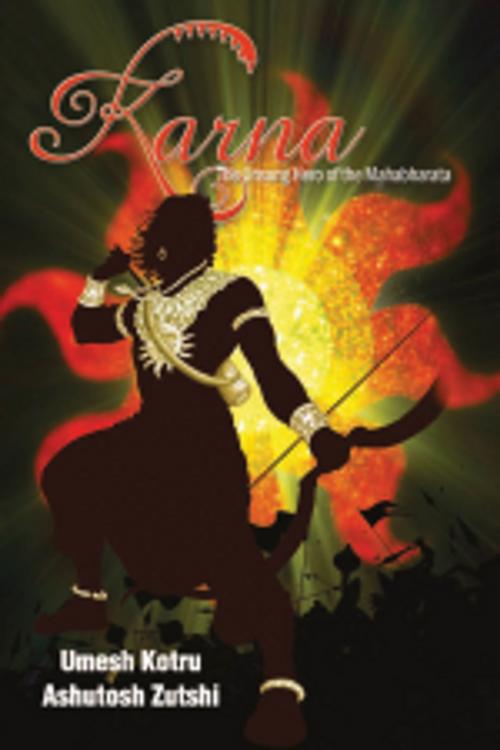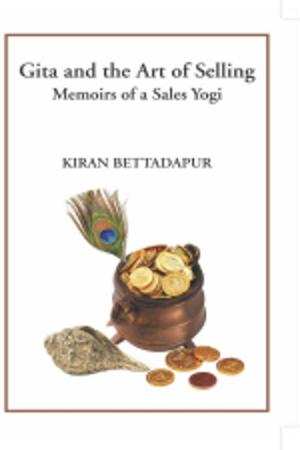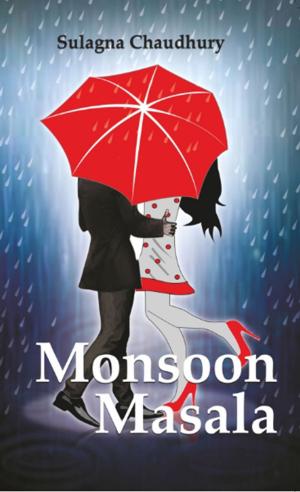| Author: | Umesh Kotru, Ashutosh Zutshi | ISBN: | 9789352014620 |
| Publisher: | Leadstart Publishing Pvt Ltd | Publication: | March 25, 2015 |
| Imprint: | Frog Books | Language: | English |
| Author: | Umesh Kotru, Ashutosh Zutshi |
| ISBN: | 9789352014620 |
| Publisher: | Leadstart Publishing Pvt Ltd |
| Publication: | March 25, 2015 |
| Imprint: | Frog Books |
| Language: | English |
Then, the exquisitely handsome body of Karna of generous acts, who should have been worthy of perpetual happiness, let go of that refulgent head with the kind of extreme reluctance evinced by a wealthy person in leaving his own prosperous home, or by a saintly one in forsaking virtuous company. [The Mahabharata, Karna-Parva; 91.53-54] In these lines of evocative pathos, the Mahabharata pays its ultimate tribute to Karna, who has hardly a rival in world literature to match his credentials as a uniquely nuanced heroes' hero towering above Hector in righteous valour, above Arjuna in generosity, and above all else in conscientious attachment to the principles of noblesse oblige. This is the intriguing story of a hero who, despite being born to royalty was, like the Biblical Moses, cast away by his mother. Brought up lovingly by a lowly charioteer and his wife, his whole life was one great struggle against cruel destiny, and against all the odds placed in his way by the inequities of his time. In the process, he blazed a new trail of glory, emerging as the adorable exemplar of purushakaara (manly effort), with tremendous achievements both as a man and also as a warrior. Yet society never gave him his due, despite being as upright as Yudhishthira, as strong as Bhima, as skilful as Arjuna, as handsome as Nakula and as intelligent as Sahadeva. Rebuffed and insulted by society at every step, he developed some flaws engendered by a defiant spirit and nurtured by association with the evil designs of Duryodhana, his benefactor prince. But those very contrarieties seem to enhance and enliven the dramatic appeal of his character as one of the brightest stars of the Mahabharata's star cast. Written in an engagingly flowing style and with an imaginative transcreation of the epic storyline, Karna: the Unsung Hero of the Mahabharata should strike a responsive chord in the minds, specifically of today's Mahabharata aficionados and generally of all lovers of exalted human drama.
Then, the exquisitely handsome body of Karna of generous acts, who should have been worthy of perpetual happiness, let go of that refulgent head with the kind of extreme reluctance evinced by a wealthy person in leaving his own prosperous home, or by a saintly one in forsaking virtuous company. [The Mahabharata, Karna-Parva; 91.53-54] In these lines of evocative pathos, the Mahabharata pays its ultimate tribute to Karna, who has hardly a rival in world literature to match his credentials as a uniquely nuanced heroes' hero towering above Hector in righteous valour, above Arjuna in generosity, and above all else in conscientious attachment to the principles of noblesse oblige. This is the intriguing story of a hero who, despite being born to royalty was, like the Biblical Moses, cast away by his mother. Brought up lovingly by a lowly charioteer and his wife, his whole life was one great struggle against cruel destiny, and against all the odds placed in his way by the inequities of his time. In the process, he blazed a new trail of glory, emerging as the adorable exemplar of purushakaara (manly effort), with tremendous achievements both as a man and also as a warrior. Yet society never gave him his due, despite being as upright as Yudhishthira, as strong as Bhima, as skilful as Arjuna, as handsome as Nakula and as intelligent as Sahadeva. Rebuffed and insulted by society at every step, he developed some flaws engendered by a defiant spirit and nurtured by association with the evil designs of Duryodhana, his benefactor prince. But those very contrarieties seem to enhance and enliven the dramatic appeal of his character as one of the brightest stars of the Mahabharata's star cast. Written in an engagingly flowing style and with an imaginative transcreation of the epic storyline, Karna: the Unsung Hero of the Mahabharata should strike a responsive chord in the minds, specifically of today's Mahabharata aficionados and generally of all lovers of exalted human drama.















